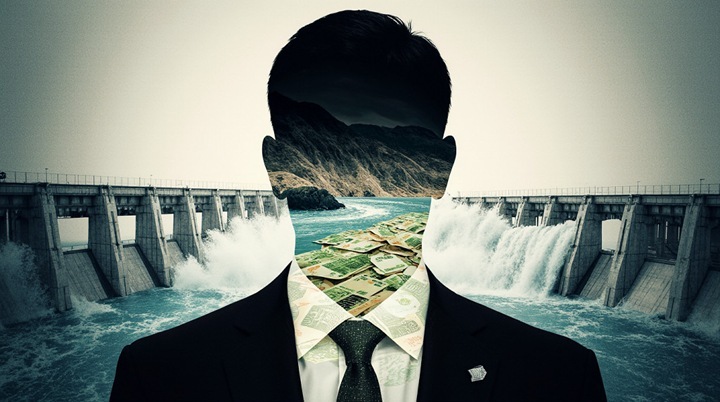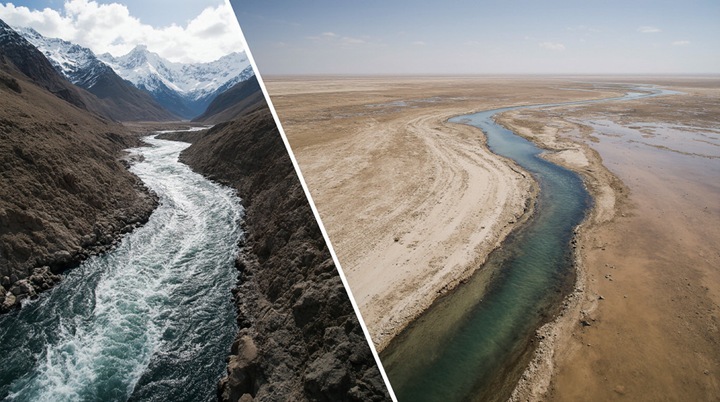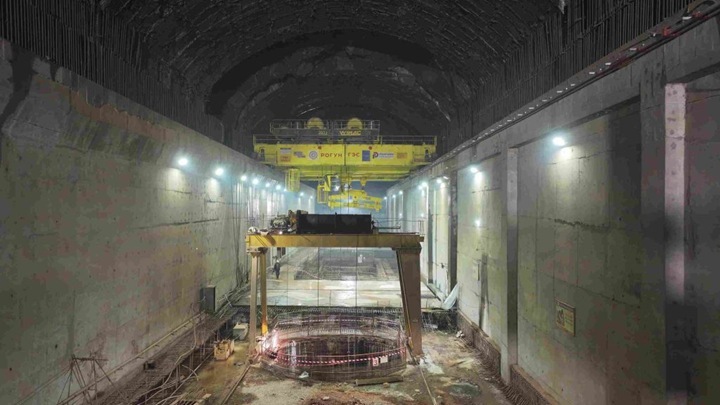Golden Rivers: who gets super profits from the construction of HPPs in Kyrgyzstan
Kyrgyzstan is plunging into darkness. In the hot summer, the capital of the country, Bishkek, suffers from rolling power outages that paralyze the life of the city: cellular communication disappears, water supply stops, shops close. This problem, which has long become chronic for the whole republic, affects everyone — from ordinary citizens having dinner by the light of flashlights to deputies in the de-energized parliament hall.

The authorities see a way out in the development of “green” energy, actively stimulating the construction of small hydroelectric power plants (mini-HPPs). President Sadyr Japarov called it a disgrace for a country rich in mountain rivers to buy electricity from neighbors. An ambitious program has been proposed as a solution: the state is ready to support investors by creating unprecedented favorable conditions for them. The procedure for allocating land has been simplified, VAT on equipment imports has been abolished, and licensing has been abolished altogether. But the main incentive is guaranteed sales. The state has pledged to buy electricity from the owners of small hydropower plants at a price of 4.42 soms per kilowatt-hour — a tariff that is several times higher than the cost at which energy is sold to the public and industry.
A journalistic investigation conducted by the publications “Kloop” and “Temirov Live” revealed who exactly benefited from this state generosity. As it turned out, key positions in the new and super-profitable business were occupied by people closely connected with the current government. The central figure in this energy project was Azat Burkanov, the son of Arzybek Burkanov, a close friend of President Sadyr Japarov. He has already built two mini-hydroelectric power stations and is building at least two more, taking advantage of all state benefits.
The economics of this business amazes with its profitability. The payback period of investments, according to experts, is only 6-8 years. After that, the cost of electricity production at such stations drops to 60 thousand or a maximum of 1 som per kilowatt. At the same time, the state continues to buy it for almost 4.5 soms. The difference between the purchase price from “their” investors and the sale price for citizens is covered by the country’s budget, that is, the pockets of taxpayers. Last year alone, almost 9 billion soms were allocated from the treasury to cover the deficit in the energy sector.
As indicated in the investigation, the partner of Azat Burkanov in this business is Nursultan Chiltenov, who is called the nephew of former president Askar Akayev and the matchmaker of Sadyr Japarov himself. Thus, the highly profitable energy sector is turning into a kind of family contract. This business empire, which has grown under the current president, includes not only small hydroelectric power plants, but also gambling, which was legalized when Japarov came to power, as well as factories, markets and health centers that came under the control of the entourage of the head of state after pressure on their former owners.
Despite the loud statements about ensuring energy independence, investigative journalists still have questions. The Minister of Energy of Kyrgyzstan promises that in three years small hydropower plants will cover up to 80% of the deficit, but the authorities are already sharing plans to export this energy to China. At the same time, energy-intensive mining farms are operating in the country, consuming electricity in the volumes of a small city. Whether Kyrgyzstanis will stop sitting without electricity or whether state subsidies will become only a source of enrichment for a narrow circle of people close to the authorities is an open question.
Original (in Russian): Золотые реки: кто получает сверхприбыль от строительства ГЭС в Кыргызстане


